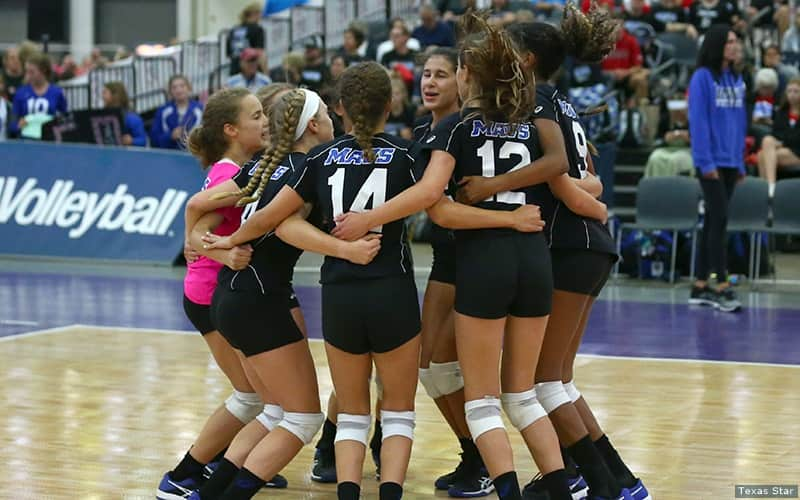
A Thank-you Letter to My 13U Teams
John Kessel sends his 13U team members on their way with ideas to hone their skills over the summer.
Resources for
Follow USAVolleyball
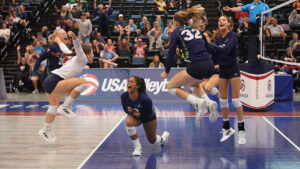 USA Volleyball Education is focused on improving developmental and educational opportunities across the sport of volleyball from grassroots to the national team level. Our goal is to provide the opportunity to access, complete and apply high-quality information and methods in the technical, tactical, physical and emotional aspects of the game for athletes and coaches while providing training, support and resources for other key stakeholders including officials, parents and clubs.
USA Volleyball Education is focused on improving developmental and educational opportunities across the sport of volleyball from grassroots to the national team level. Our goal is to provide the opportunity to access, complete and apply high-quality information and methods in the technical, tactical, physical and emotional aspects of the game for athletes and coaches while providing training, support and resources for other key stakeholders including officials, parents and clubs.
For years, the focus of volleyball in many areas and across various levels shifted to a mindset of winning at all costs.
What we now know is that the most successful teams in the world have developed a model of training and a culture that supports a holistic approach to athlete development which not only sets them up for competitive success on the court, but values and emphasizes the important of athlete health, well-being and long-term involvement in the sport.
The USA Volleyball Development Model was created based on the idea that volleyball in the U.S. could be taught differently, resulting in long-lasting positive outcomes across all measures of performance while keeping kids involved and loving the game longer.
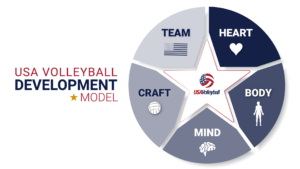
The five pillars of the USA Volleyball Development model provide the basis for a holistic approach to the core elements that are vital to supporting development at every level and across age groups.
USA Volleyball Education is committed to providing support for the volleyball community with a role-based approach to education and training. Whether you’re planning practices, cheering from the stands or making the right call, we provide the tools and resources to help you succeed.
USA Volleyball partner Sports Imports has provided USA Volleyball coaches with drills for use with their Trainer+ and The Vertec.


John Kessel sends his 13U team members on their way with ideas to hone their skills over the summer.
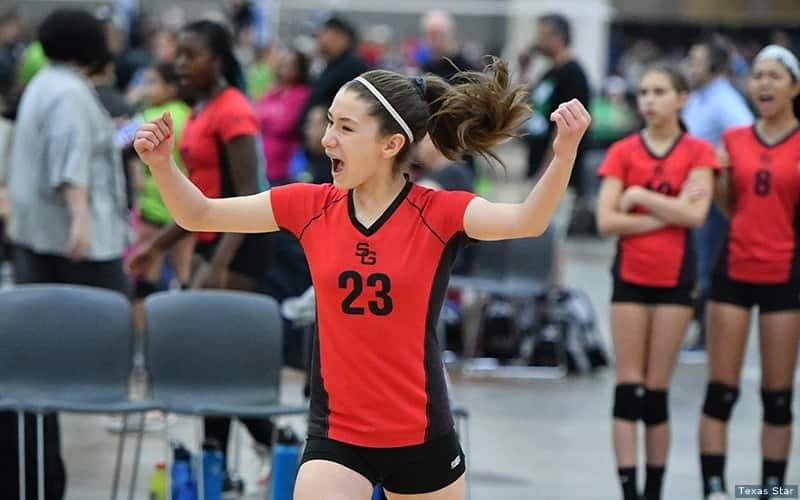
In the second part of this CAP II article, Scott Jones discussing building confidence to change athlete mindsets.

Stephen F. Austin University head beach coach Alex Luna shares his thoughts on what makes a good coach in this BCAP II article
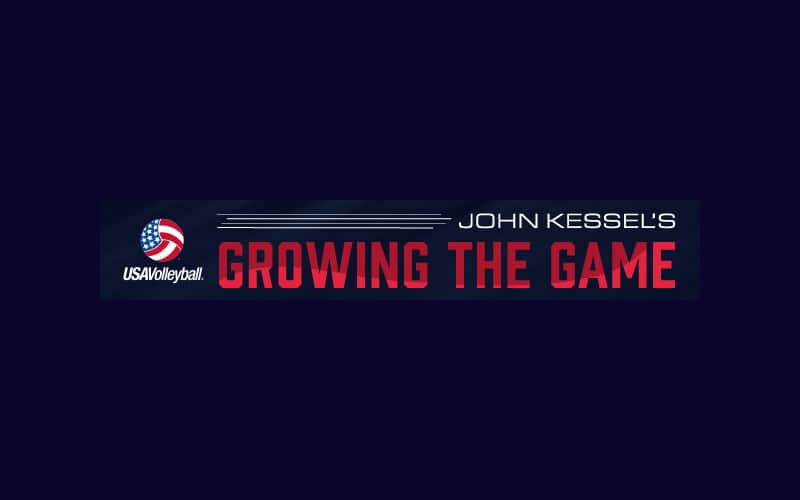
John Kessel's poster of John Wooden quotes is an important part of his coaching toolkit.
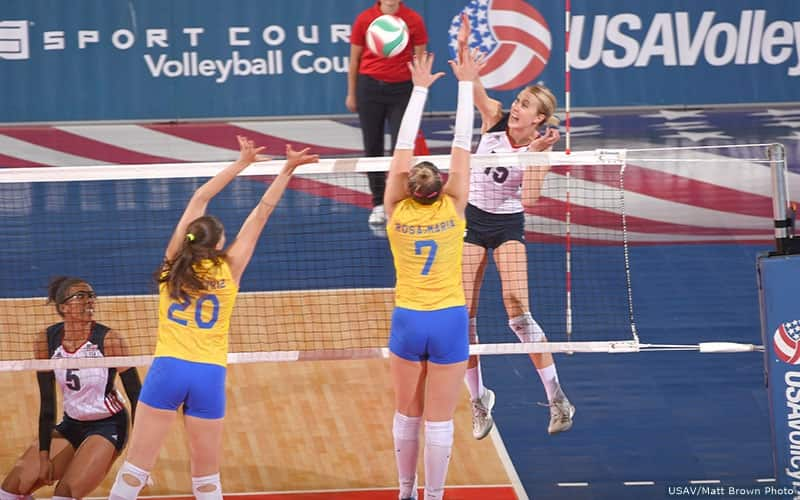
No matter how tall (or short) your players are, John Kessel has tips to improve their hitting efficiency and make a difference for your team.
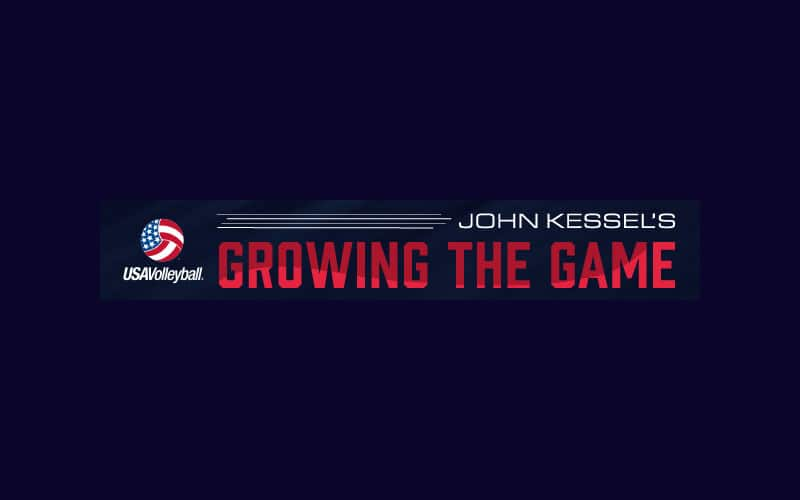
Lessons learned from this year's USOC American Development Model Summit
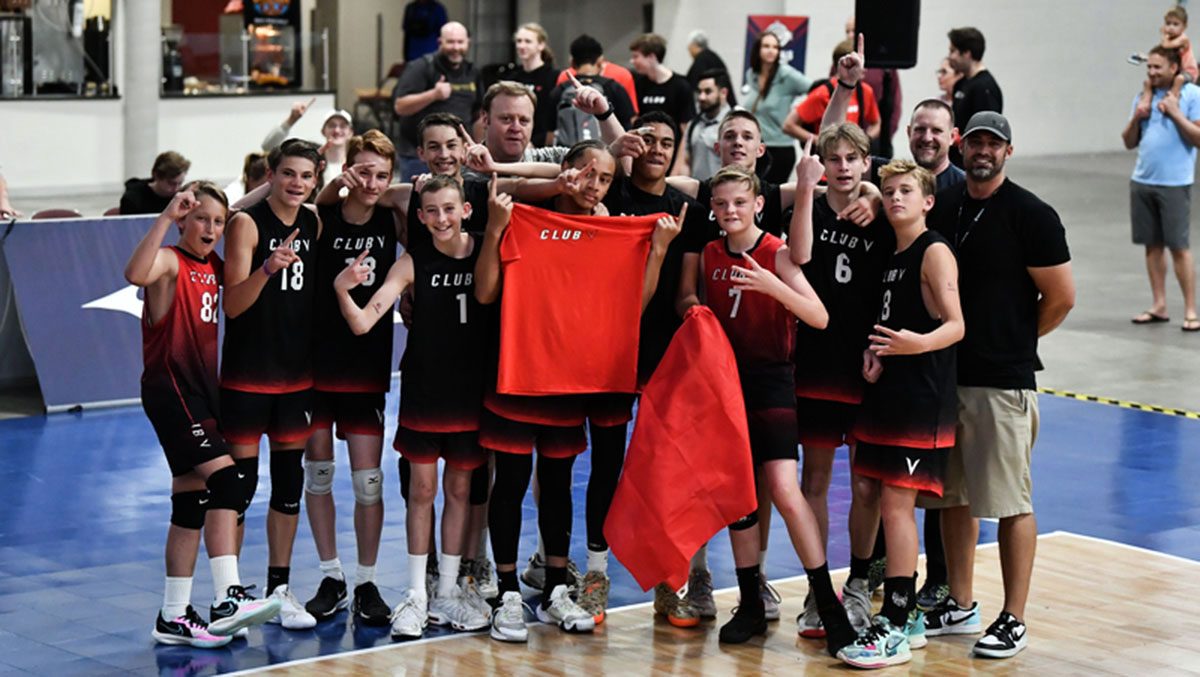
Just think about it, 10 boys playing on a team. One team, one unit, all together, sweating, working hard, learning discipline, on the court, building muscles, the beginning of a passion.
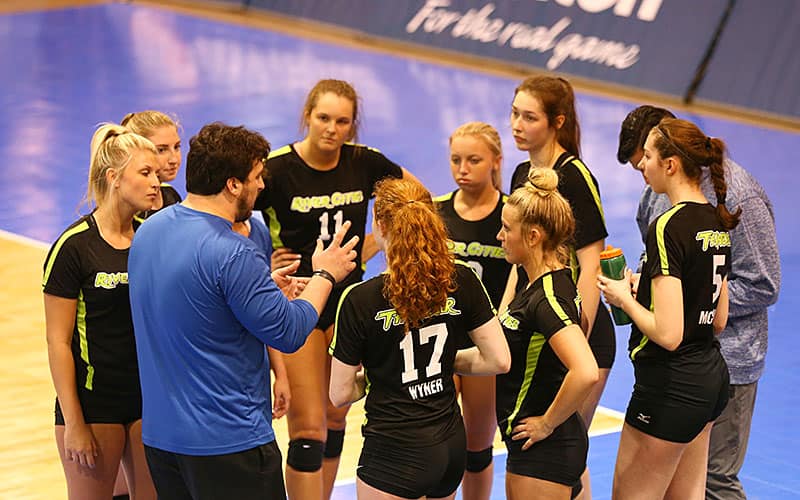
Too often, coaches say “my kids,” and while I understand the wording, I think it’s crucial to remind yourself that you have only a few hours to impact, teach and care for your players.
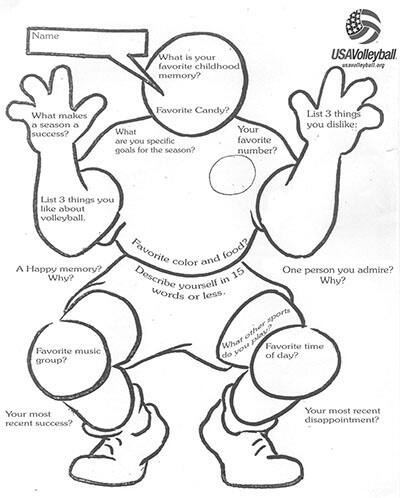
John Kessel is about to embark on another season of coaching, and he reminds you that being a caring coach is of utmost importance.
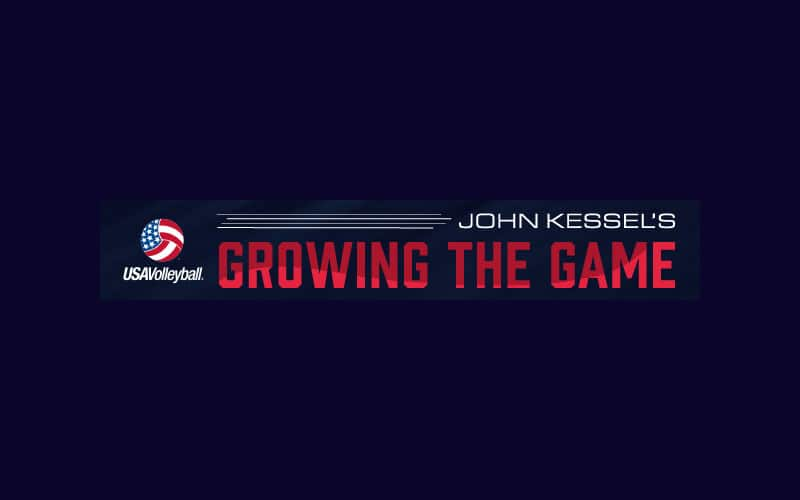
Teams lose. Sometimes they lose badly. Where do you go next when your team is down?
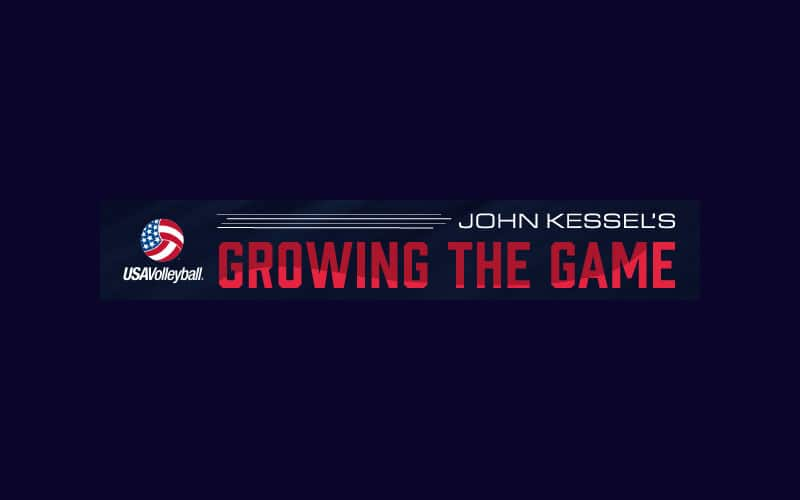
What are the magic drills that make some teams so good? Big secret: it's not the drills. There is no magic.
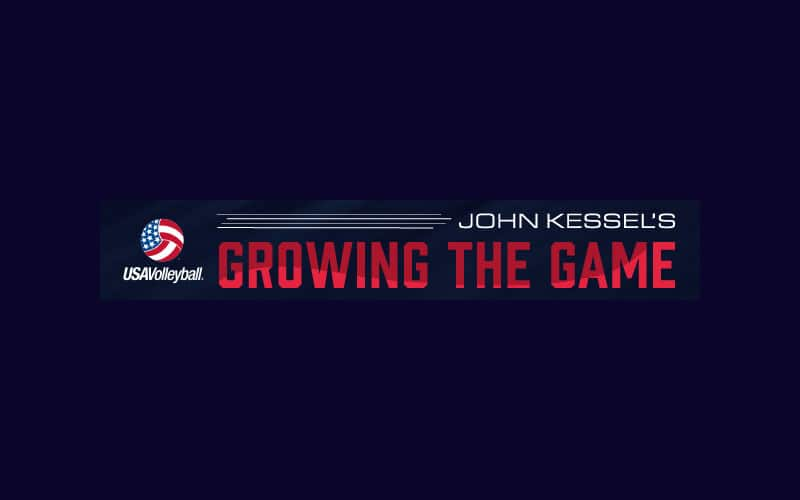
It's been a summer full of "aha!" moments as I visited numerous coaching clinics around the world.
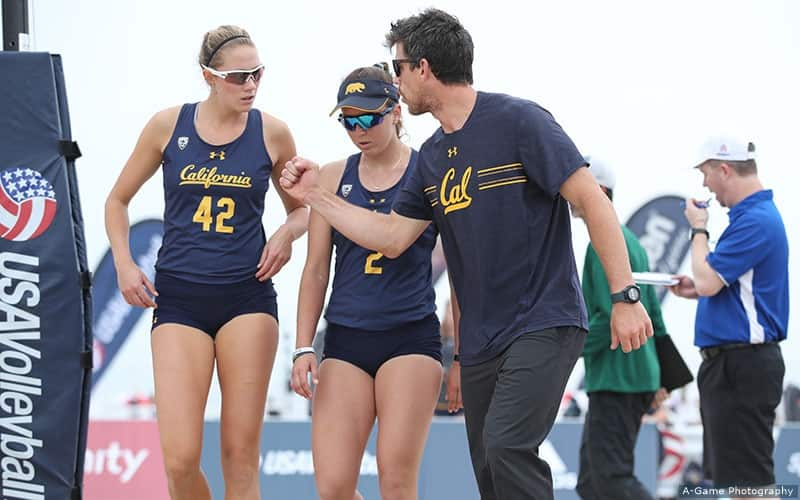
It's summer, and it's time to learn about yourself as a coach and how to impact players more effectively.
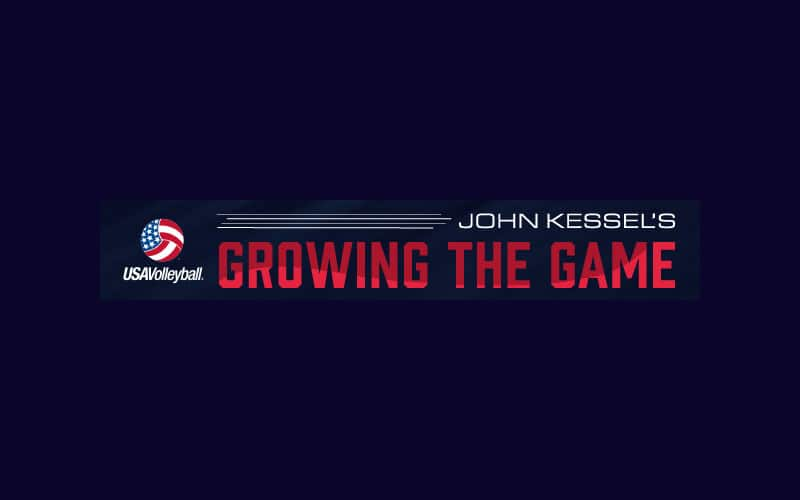
There are many ways to define success for a volleyball coach.
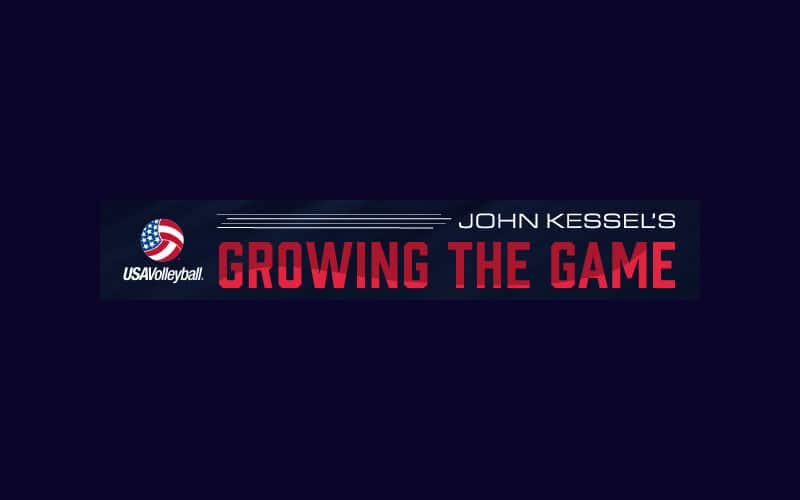
Understand the powerful importance of creating a healthy culture in a program.
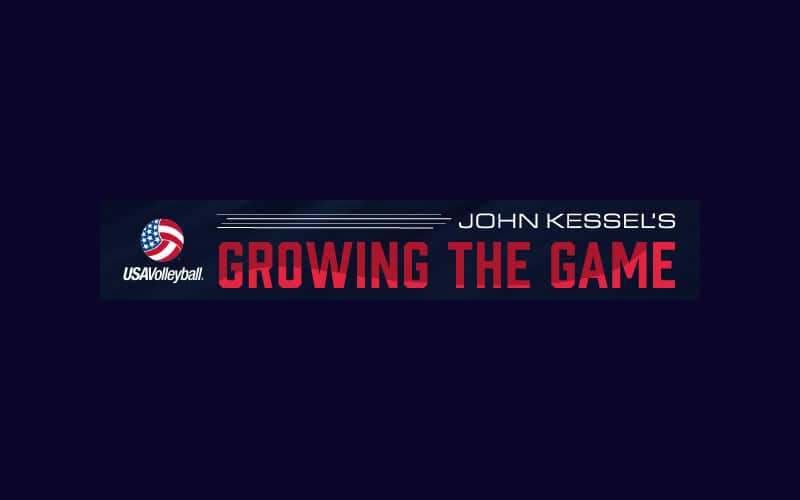
Then and now, creating randomness in the learning process, and its imperfections, creates both better retention and creative play at any level.
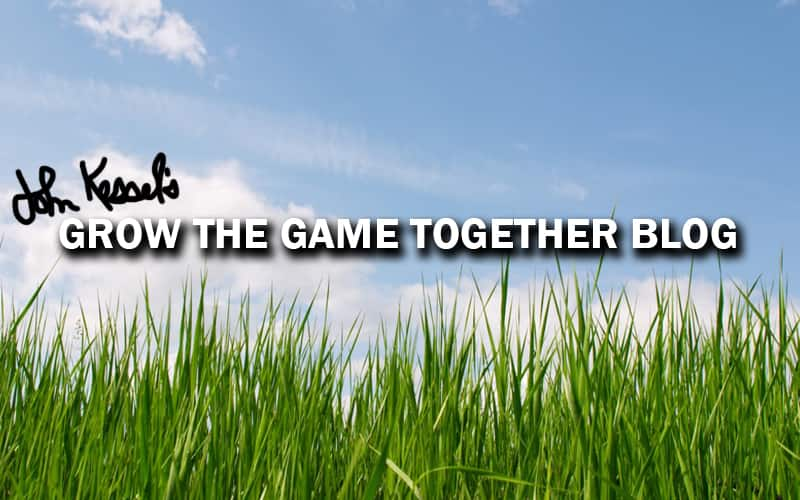
It's not about wrong or right, but about what is more effective. It's not criticism when science guides us to more effective ways to learn, it is information, which sadly many traditional coaches chose to ignore. As the great William Penn said, "Time is what we want most, but what we use worst."
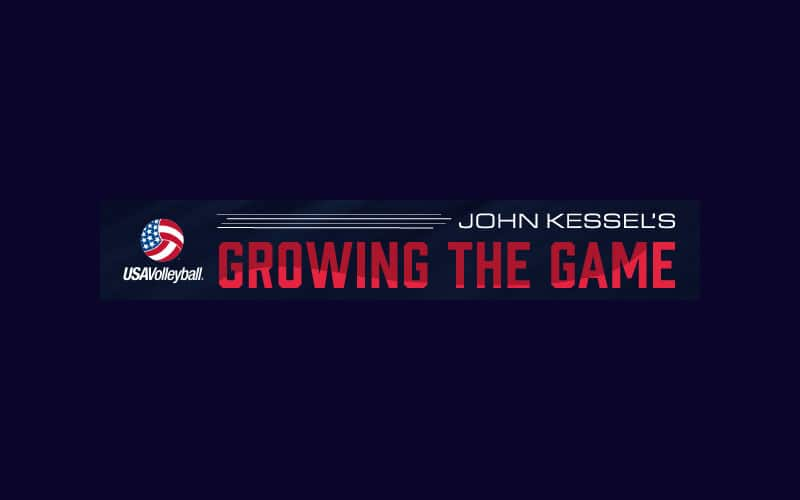
If there was one thing I would ask clubs and schools to change, it is to play far less 6 v 6 at younger ages, if any at all, where all but one of the kids stands around and watches the ball. For ALL ages, play much more 1v1/2v0/1v1+1/2v2, and reserve 6 v 6 for older players. It really is that simple.

It’s not about wrong or right, but about what is more effective. It’s not criticism when science guides us to more effective ways to learn, it is information, which sadly many traditional coaches chose to ignore.
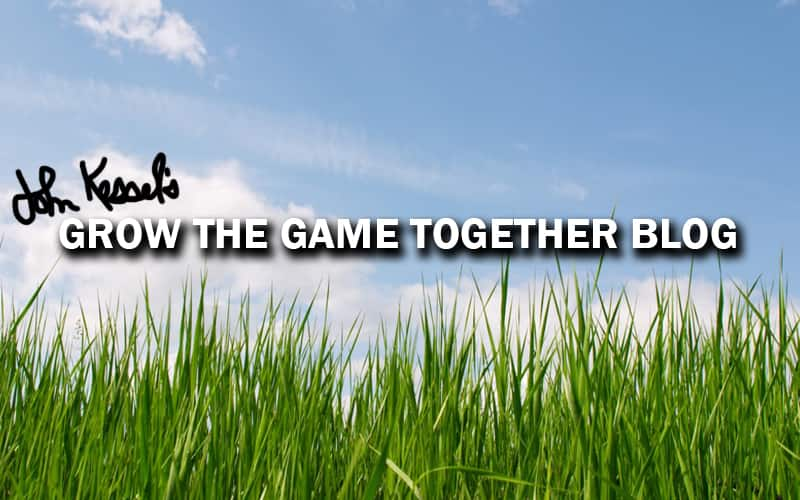
This month, I journeyed for the second time in a year above to our neighbor north of the 48 states, to work with ACE Volleyball club as part of their Make-A-Wish project. The athletes had fundraised over $24,000 beyond their club costs, for the second year in a row.
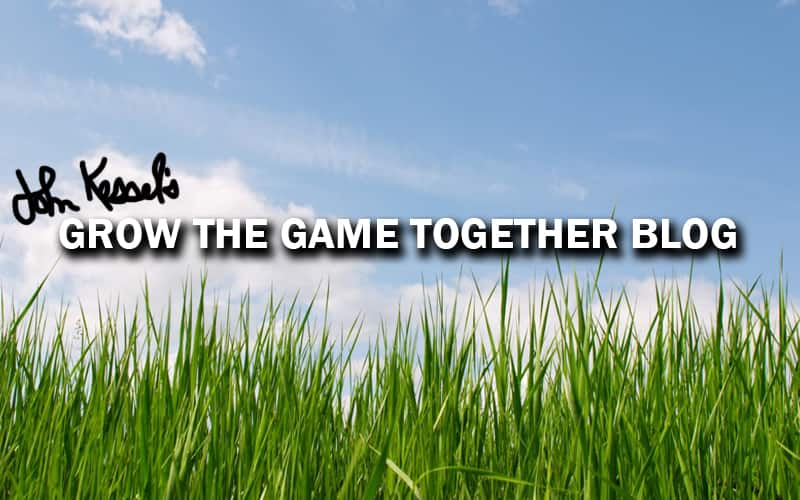
There is a small market pro baseball team working hard to get their players “Ready at 7.” This is the time of most single, regular-season games, and the maximum number of games in the World Series. They are also challenging their sport’s traditions in the areas of learning.